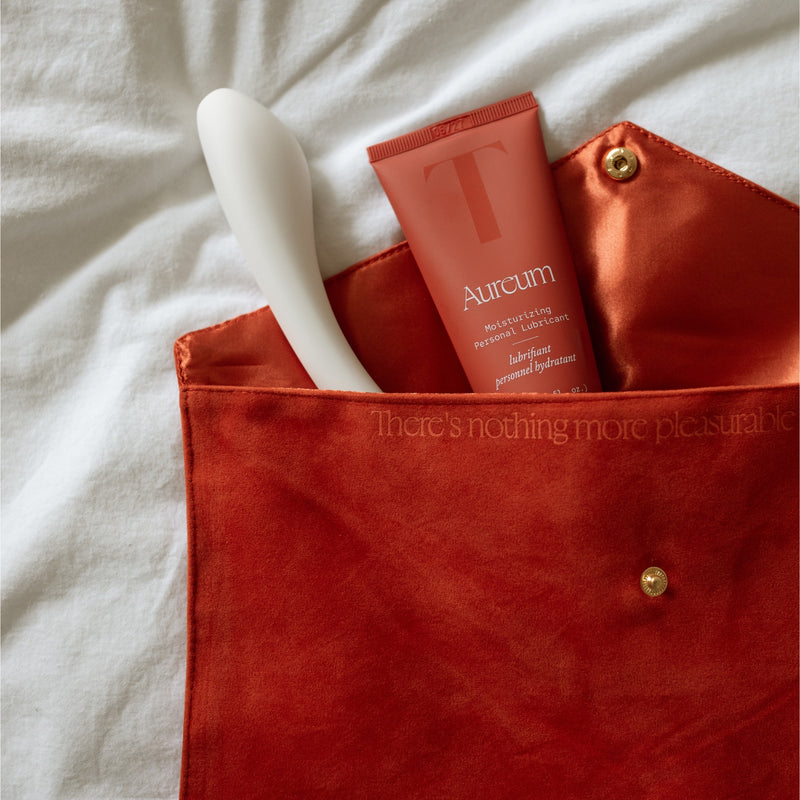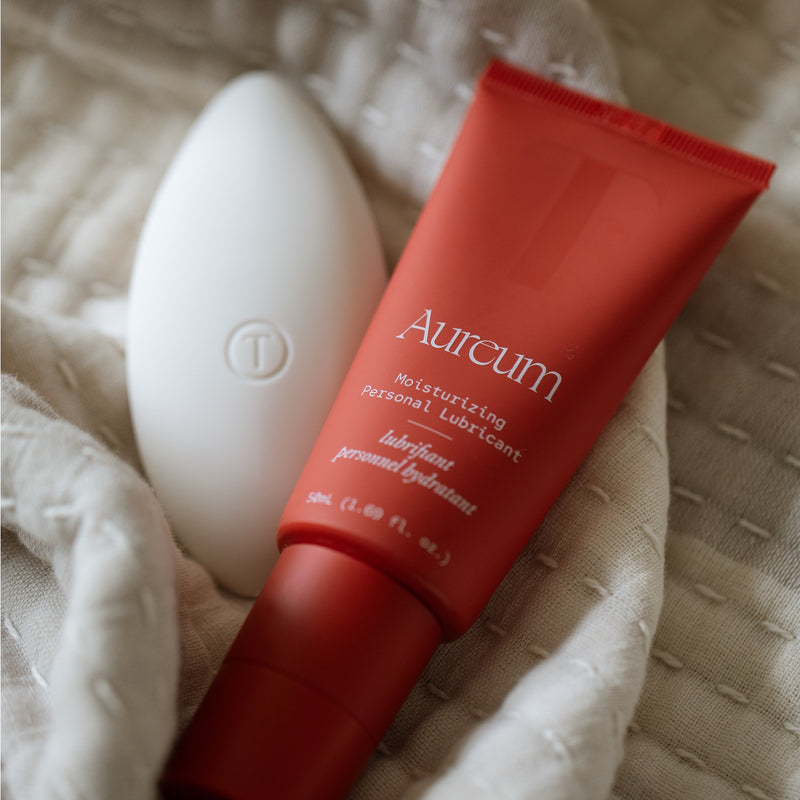02 Office Hours | What we learned
“As we age, our vaginal tissues need moisture. I encourage women to use vaginal moisturizers as part of their usual skin care routine.” - Julie Bottarini, Pelvic Floor Physical Therapist
A necessary conversation
We were delighted to showcase incredible insights from Tabu advisor and pelvic floor physical therapist Julie Bottarini at our December Office Hours session.
Our community members who attended were able to get their sexual health questions answered. Here are some of the highlights.
Highlights from Julie’s talk
-
Pain doesn’t have to be forever. Julie let us know that vaginal and vulvar pain can be reversed. Because dryness can be a major source of pain and irritation, she stressed the need for moisture, especially for women in peri and postmenopause.
Painful dryness can also be impacted by an imbalance in vaginal pH, so it’s important to maintain that pH. Julie specifically mentioned how important it is to avoid using any soaps in the vagina or on the vulva, and to only moisturize with pH balanced products.
“Moisturizers can make the skin comfortable, and can help with irritation, itching and stinging.”
-
And neither does atrophy. Adding moisture can help make dry skin more comfortable - which can make it easier to manage painful atrophy. Atrophy can make the tissues tight, which Julie says can benefit from self-stretching and massage with the fingers.
A pelvic floor physical therapist can help lead you through exercises to stretch those muscles. They may also recommend the use of a dilator or the right-sized personal massager to help stretch and stimulate.. For really severe atrophy, your gynecologist might recommend the use of a topical hormone product, which with time, can help regenerate damaged tissue.
“A combination of moisture and moving the tissue can help resolve these uncomfortable feelings of stinging and burning.”
-
You can make changes now for better sexual health later. We don’t have to wait for GSM symptoms* to come to us. Julie says we can work on our health now to support our bodies later.
The best way to handle GSM symptoms is to see a skilled pelvic floor physical therapist, gynecologist, urogynecologist, or other expert to find the cause.
“It’s nice to be ahead of the game in terms of pelvic strength and health.”
-
Your libido is never lost forever. Julie cautioned us that to maintain libido, it’s important to maintain sexual practice, with or without a partner.
Julie also recommends consulting with a medical professional who knows how to manage and understand hormone levels. Even the smallest changes can make a huge difference to desire and libido.
“That phrase ‘use it or lose it’ is true. Avoidance can make our body crave it less.”
-
You can (and will!) orgasm again. Julie assured our group - menopause doesn’t take away the ability to orgasm, nor does it necessarily change the quality of orgasm. However, GSM* can lead to a weaker pelvic floor. Julie mentioned that pelvic floor strengthening exercises to bolster weakened muscles can help give a faster, sometimes stronger and more satisfying orgasm.
Just because they might not occur as quickly as they did in the past, doesn’t mean they are gone. It’s a normal change that can be adapted to. And there are options for that adaptation - you can always consult a pelvic floor physical therapist or gynecologist who specializes in sexual health. They can help pinpoint specific issues, offer exercises to help, and in the case of a GYN, recommend hormonal therapies.
“Cut yourself some slack.”
-
What to expect at a pelvic floor muscle exam. Comparing it to the more familiar gynecological exam, Julie walked us through the basic experience of a first appointment with a pelvic floor physical therapist - or at least how she does it.
-
You won’t be put in stirrups and she won’t use a speculum!
-
There will be a thorough inspection of the skin and vaginal tissue, assessing:
-
Reflexes
-
Sensation
-
Any visual abnormalities
- Your perineum will be observed - they may have you do a contraction.
-
You may be asked to do a fake cough so they can observe the function of the pelvic floor muscles.
-
They will perform a digital internal exam. Think finger, glove, lubricant.
-
During the internal exam, they will give verbal cues for relaxing the pelvic floor.
-
They will palpate inside to check for muscle tone, strength, pain, or any kind of prolapse.
We’re so lucky to have access to Julie’s expertise and passion for educating women in pursuit of helping us lead healthier lives. As one of our advisors, she adds invaluable insight to our team here at Tabu.
Want a chance to get your sexual health questions answered?
Don’t worry, we provide Office Hours exclusively to our email list subscribers on a monthly basis.
Keep an eye on your inbox to sign up for upcoming Office Hours!
*Genitourinary Syndrome of Menopause, or GSM, is used to describe atrophy and a mix of vaginal and urinary tract symptoms.









